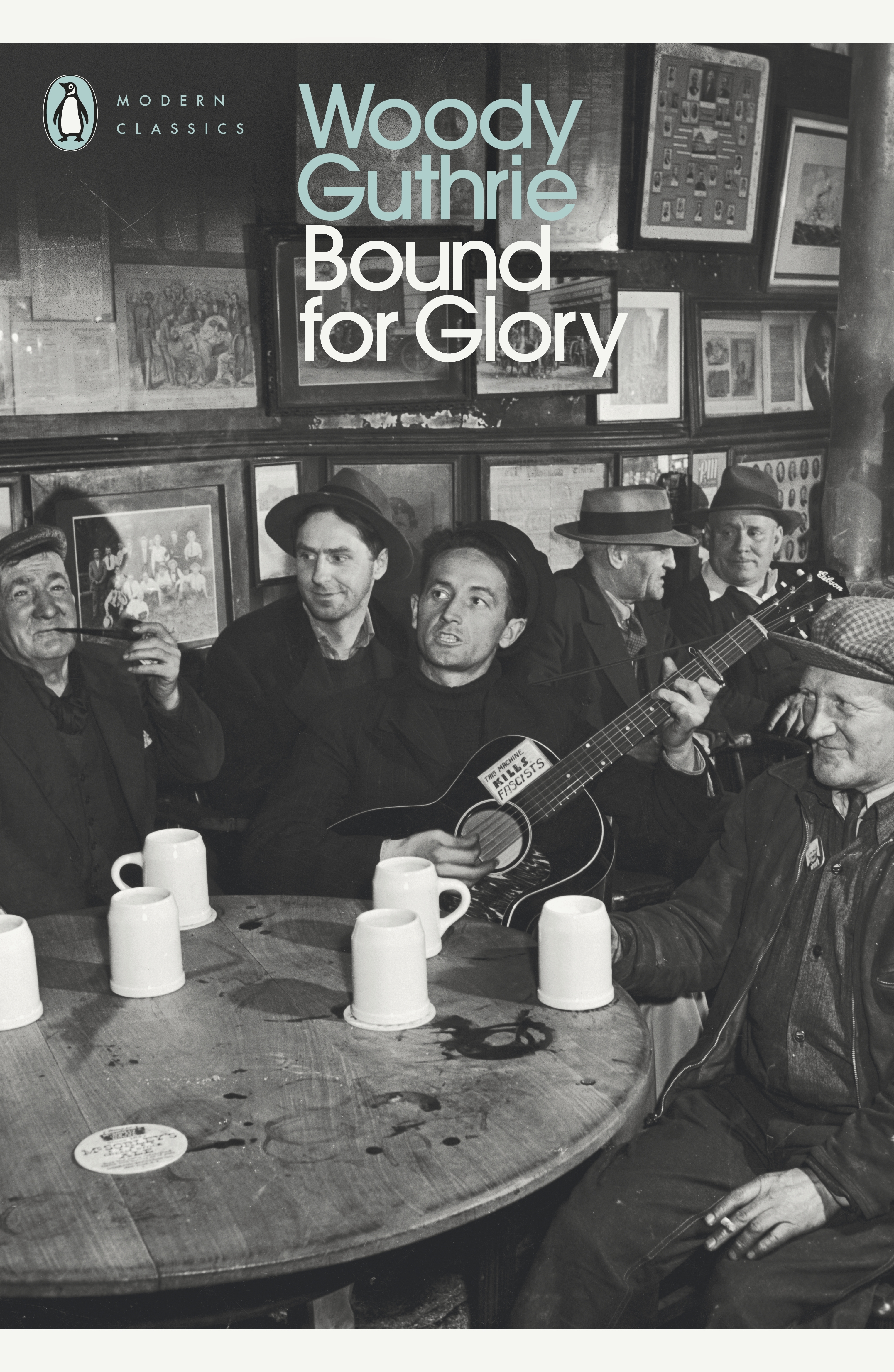Driven West by drought, dust, and economic opportunity, a young
Woodrow Wilson Guthrie set out from home in 1936, scribbling folk songs,
letters, and memories that were published seven years later as the
autobiographical novel Bound for Glory. "I was always a big hand to walk along and look at the things along the
side of the road," he wrote. "Too curious to stand and wait for a ride. Too nervous
to set down and rest. Too struck with the traveling fever to wait."
In his book, Guthrie described the people he met as well as the societal ills he observed, but he also wrote about the beauty of America, a country the musician would cross again and again after his "traveling fever" originally took him from Texas to California by foot, car, and train. I first heard Dust Bowl Ballads in college, and since reading Bound for Glory I've decided that someday I'd like to follow in Guthrie's footsteps—using the book as a guide—to survey how much the landscape and lifestyle of the American Southwest has changed, and to learn what today's ribbon of highway might have in common with that of the late 1930s.
Until then, I'll have to explore his legacy in other ways. Fortunately, the Grammy Museum and Woody Guthrie Publications (with help from several other centennial sponsors) have joined forces to celebrate the life of one of the country's most influential singer-songwriters. All year long they've hosted conferences, theatrical performances, and concerts, and with a number of events remaining before the end of the year, there's still time to wish Woody a Happy Hundredth. I'd definitely like to make it to one of the last shows; hopefully other fans are planning to get their tickets, too.
In his book, Guthrie described the people he met as well as the societal ills he observed, but he also wrote about the beauty of America, a country the musician would cross again and again after his "traveling fever" originally took him from Texas to California by foot, car, and train. I first heard Dust Bowl Ballads in college, and since reading Bound for Glory I've decided that someday I'd like to follow in Guthrie's footsteps—using the book as a guide—to survey how much the landscape and lifestyle of the American Southwest has changed, and to learn what today's ribbon of highway might have in common with that of the late 1930s.
Until then, I'll have to explore his legacy in other ways. Fortunately, the Grammy Museum and Woody Guthrie Publications (with help from several other centennial sponsors) have joined forces to celebrate the life of one of the country's most influential singer-songwriters. All year long they've hosted conferences, theatrical performances, and concerts, and with a number of events remaining before the end of the year, there's still time to wish Woody a Happy Hundredth. I'd definitely like to make it to one of the last shows; hopefully other fans are planning to get their tickets, too.




No comments:
Post a Comment